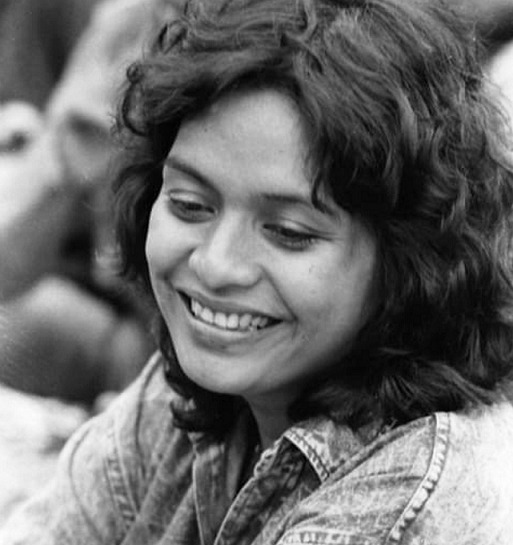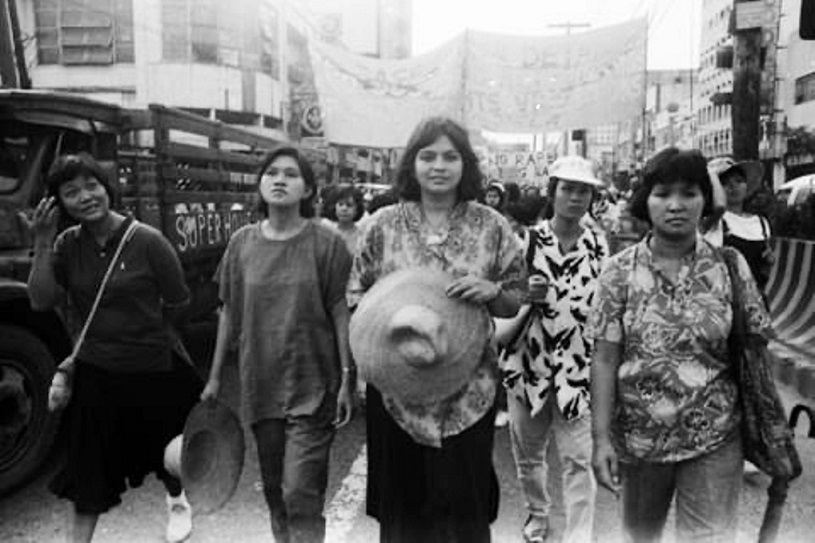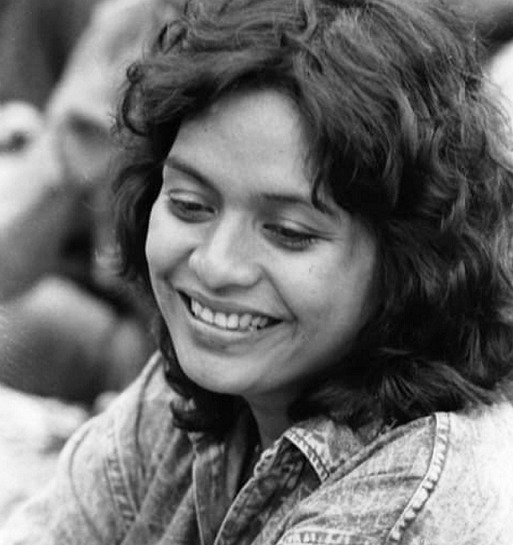
Poet and ex-underground figure Mila D. Aguilar met Nelia Sancho in 1974 in Iligan City when the former had just been assigned to head the Mindanao Urban Committee. Nelia, a former Queen of the Pacific title holder, suddenly had to go underground again because she had been exposed in Davao City. She was assigned to head the Communist Party of the Philippines Finance Committee.
During that period, the two never debated on anything as they were “at one in the cause of nationalism and democracy,” Aguilar said. “I wrote the poem ‘For Nelia’ in May 1975 after I had been some months in Davao City, staying intermittently at her family’s house there. Her sister told me that relatives were asking why she was so hard, having already been captured once then but insisting on going underground again. That inspired me to write a poem in her defense.”
There was just one time when they disagreed. Mila was about to leave Iligan City to pursue her assignment of making Davao the center of the CPP Mindanao Urban Committee. She did not have a centavo in her pocket because she had given all the money she had received from her father to the coffers of the party in Mindanao. As Finance Committee of one, Nelia held that money without knowing it came from Mila.
Mila recalled, “When I asked her for money, she gave me five pesos. Even at that time, that wasn’t enough to get me to Davao through Cagayan de Oro and Butuan! I was very angry, of course, but didn’t argue needlessly because even at that time, I had a sense of faith that the people—not God yet—would tide me through anything. You know what happened? When the priests there learned that I had been treated like that, they brought me to Cagayan de Oro in their jalopy! When I arrived at a supporter’s house there, she gave me enough money to ride a bus to Davao City through Butuan, with enough to spare for a meal along the way! So you see, why argue needlessly? God took care of me, even if I didn’t even know Him then.”
But Aguilar remained close to Sancho not only because of her humility, even her scrimpiness but because of her whole family, “who became my family while I was underground.”

In 1974, the two were together again with Aguilar introducing Sancho to the man who would become her husband, Antonio “Tony” Liao, then commander of the Misamis Oriental-Occidental front.
Aguilar said, “I conducted him to the supporter’s apartment we lived in at that time and sat him on the bench in the sala while Nelia was cooking in the kitchen right across. The moment he laid his smiling eyes on her, he told me, ‘Saan mo pinulot yan?’ I knew then that it would be them from then on. When I got to Davao and met Nelia’s father, I understood why she, the Arab-looking mestiza who took after her mother, had accepted him. Her father also had chinito eyes, exactly like Tony’s.”
Aguilar felt “very, very sad” at Nelia’s passing than she did for the passing of her two younger sisters with whom she was closer because they were more generous. “I don’t know why I was so sad, but I still am. I think maybe because I was never able to draw her to Christ.”
Actor Gigi Dueñas de Beaupre, now based in Guadeloupe, French West Indies, met Sancho at the College of Mass Communication at the time when the former was hanging out a lot at the nearby College of Music with tenor Dodo Crisol.
De Beaupre was with Gintong Silahis, Behn Cervantes’s theater group that held rehearsals at the small auditorium between Mass Comm and Abelardo Hall
She said, “We also bumped into each other at the Palma Hall Basement since she was the big muse of the fraternity Upsilon Sigma Phi. We weren’t close, but we chatted a lot and laughed. I believe she found me amusing. She would invite me for tea at her room at the International House. In the beginning I was awed, I agreed with everything she said. How could she be wrong? She was Nelia Sancho.”
In the 1980s after Ninoy Aquino’s assassination and the snap presidential elections, De Beaupre couldn’t understand why the movement of which Nelia was a part called for a boycott of the elections. She told Sancho, “Why should we boycott Cory Aquino? The masses were massively crying for Cory which was for me the dialectical logic of the whole thing—from Ninoy’s death to that snap elections. The people, who we were meant to serve, were screaming for Cory. Why go against that?”
But decades earlier when martial law was declared, De Beaupre said Sancho bequeathed a big box to her before she went underground. When De Beaupre opened it, she discovered many miniskirts that fit her. “So there I was walking around in Nelia’s minis.” News of her death made Gigi learn “to accept that our era is on its way out. There are those among us though who left their marks, making them immortal.”
